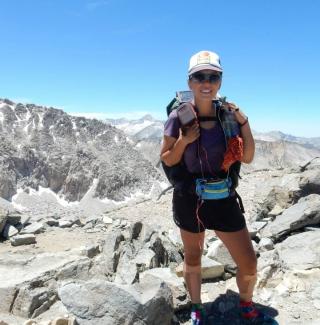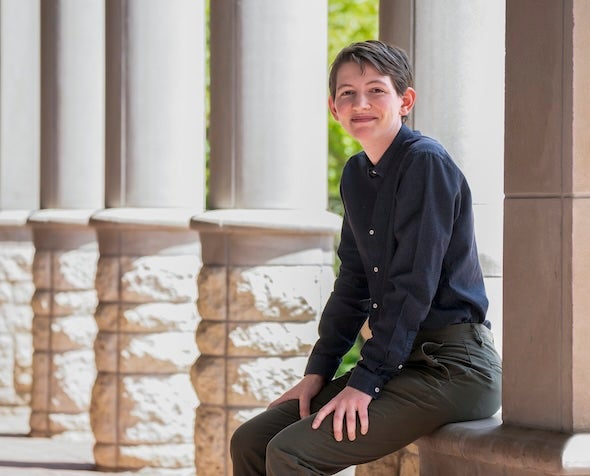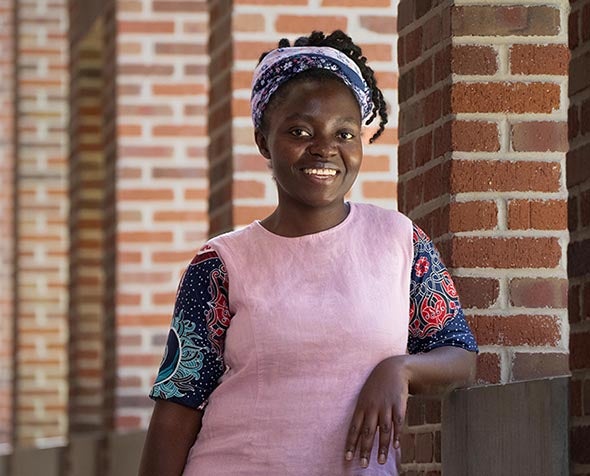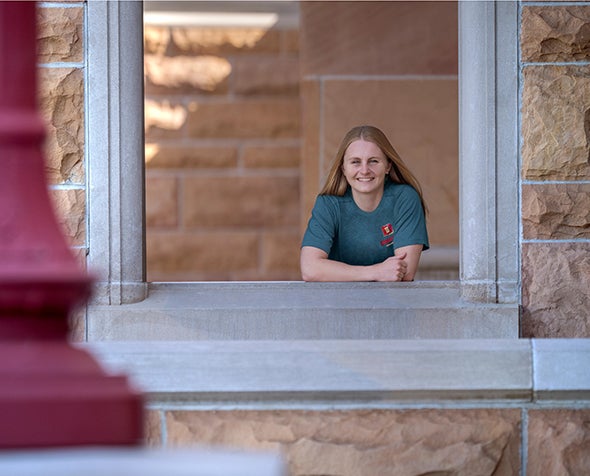Environmental Scientist Turned Social Worker, GSSW Grad Finds Meaning in Creating Community
A journey of self-reflection led Toiyabe Hoyopatubbi to a new path in tribal social work on the Western Slope.
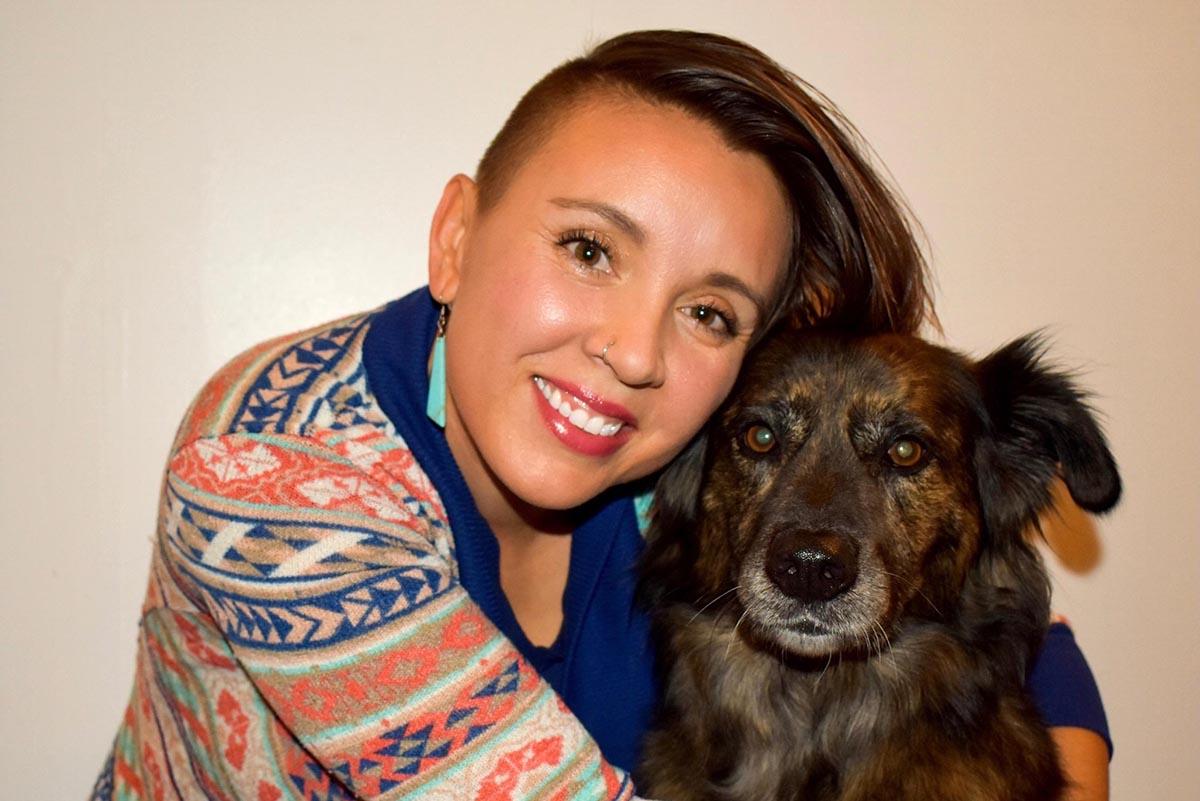
In 2017, Toiyabe Hoyopatubbi trekked the Pacific Crest Trail (PCT) accompanied by a symphony of sensations—the rustling of leaves, the crunch of their boots and the persistent thought of starting something new.
“Science can be lonely,” Hoyopatubbi thought.
But there they were, mostly alone, hiking 2,650 miles along the coast from Mexico to Canada.
For Hoyopatubbi, who worked in environmental science for 10 years, the isolating fieldwork and secluded office environment left them yearning for a more relational way to make a difference.
So, at 34, they uprooted their life. They took off a year of work and spent six and a half months on the PCT, navigating its winding paths through diverse landscapes and challenging terrain. Completing the trail—a long-held goal—brought a sense of clarity. They realized they wanted to combine their passions for outdoor education and therapy, which ultimately led them to pursue a career in social work.
Now 41 years old and seven years after they first stepped on the PCT, Hoyopatubbi will soon earn a master’s degree in social work from the University of Denver’s Graduate School of Social Work.
Hoyopatubbi, who lives on the Western Slope, is a part of DU’s Four Corners MSW cohort in Durango, Colorado. The program prepares students for Licensed Clinical Social Work (LCSW) licensure and rural and tribal social work practice in behavioral and integrated health.
Hoyopatubbi is passionate about tribal social work. It’s deeply personal. As an Indigenous queer person, they want to help others overcome generational trauma. Currently, they are working at Indigenous Wellbriety Program, a nonprofit organization founded by Imo Succo, an alumna of the Four Corners program.
The pair met last fall when Succo (MSW ’20) spoke to their cohort. At the time, Hoyopatubbi had a different internship, but after meeting Succo, they wanted to work with her. Hoyopatubbi started attending Indigenous Wellbriety's talking circles, where community members listen to sobriety stories of their neighbors. Soon after, Hoyopatubbi asked if they could intern with Succo.
“They were so motivated and willing to do the work,” Succo says. “We’re community based. For me, running it [means] coming at it with a lot of education. It’s really the coaches that are with us.”
Indigenous Wellbriety’s curriculum is based on the principles established by White Bison, an Indigenous-operated organization dedicated to Wellbriety—a movement to be sober and well.
Every Tuesday and Thursday, Indigenous Wellbriety hosts talking circles at the Cortez Cultural Center in the town of Cortez, Colorado, with an option to join virtually via Zoom, drawing people from across the country.
The talking circles offer a safe space designed for healing—a blend of tradition and peer recovery. By prioritizing the Indigenous experience, the talking circles provide a more accessible avenue for recovery services. Trauma is a large component of the program, but it’s part of the group’s journey to identify it.
Hoyopatubbi has found catharsis in the talking circles, too. They’ve opened up, sharing their journey as a nonbinary Indigenous person. In turn, the participants have grown to trust Hoyopatubbi, creating more space for dialogue.
“They really enjoy Toiyabe’s personality,” Succo says. “Our team members call each other family. I tell my team, ‘You’re the family I’ve always wanted.’”
After years of yearning for a more interpersonal career, that’s what Hoyopatubbi has found. As they prepare for post-graduation life, they look back fondly at the journey that led them to DU, one filled twists and turns, much like the PCT.
“In social work, the sky’s the limit,” Hoyopatubbi says. “My long-term goal would be to start my own wilderness therapy program for queer Native youth. It’d be my passion project.”








